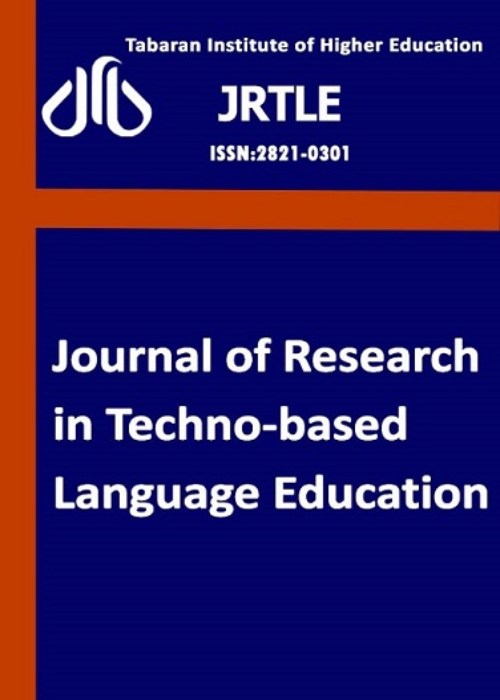فهرست مطالب

Journal of Research in Techno-based Language Education
Volume:3 Issue: 4, Dec 2023
- تاریخ انتشار: 1402/09/10
- تعداد عناوین: 2
-
Pages 1-9
This article presents a study on the use of Korean slang, particularly secondary slang, in the popular Korean TV show Running Man. The researcher applied Chapman's (1988) theory to distinguish and categorize the types of Korean slang used in the show, limiting the types of slang to only secondary slang and particularly applying the category of loan words based on Choo and Kwak's (2008) model. Using the descriptive method, the researcher classified slang expressions used in two episodes of Running Man and found that 312 secondary slang expressions were elicited. The study suggests that Running Man is a window to visualize the Korean language and helps foreign audiences learn the slang easily and memorably while having fun. This information can be useful for researchers who are interested in studying the use of slang in different languages and contexts. The findings of the study are beneficial for students, instructors, and researchers who want to understand the characteristics of Korean slang expressions, particularly loan words from the English language into Korean. The study also highlights the importance of authentic language use in entertainment media for language learners.
Keywords: Korean Slang, Loan Words, Secondary Slang, TV Show -
Pages 10-22
Earlier research has shown that fair assessment plays a crucial role in the classroom and is closely associated with students' academic success. Besides, multiple studies have consistently indicated that the cognitive aspect of test anxiety significantly and meaningfully influences test performance, highlighting the connection between test anxiety and academic achievement. Therefore, this correlational study was done to investigate the relationship between Iranian EFL learners' perceptions of fairness in classroom assessment and their cognitive test anxiety. It followed a quantitative method and a total number of 201 learners, 88 males along with 113 females, participated in the present study voluntarily. A convenience and random-sampling method were applied, using fair assessment and cognitive test anxiety questionnaire. The results of the study, using Pearson-moment correlation and Regression analysis, revealed that there was no significant relationship between Iranian EFL learners' perceptions of fairness in classroom assessment and their cognitive test anxiety. It also indicated no significant difference between male and female learners' perceptions of fairness in classroom assessment and their cognitive test anxiety. The findings of the study can be implemented in educational systems by teachers, learners, programmers, and researchers. It can be considered as a guideline for teachers, especially EFL teachers in academic environments to find solutions for the problems and difficulties in the fairness of classroom assessment.
Keywords: Assessment, EFL learners, Fairness, Cognitive Test Anxiety, test anxiety

